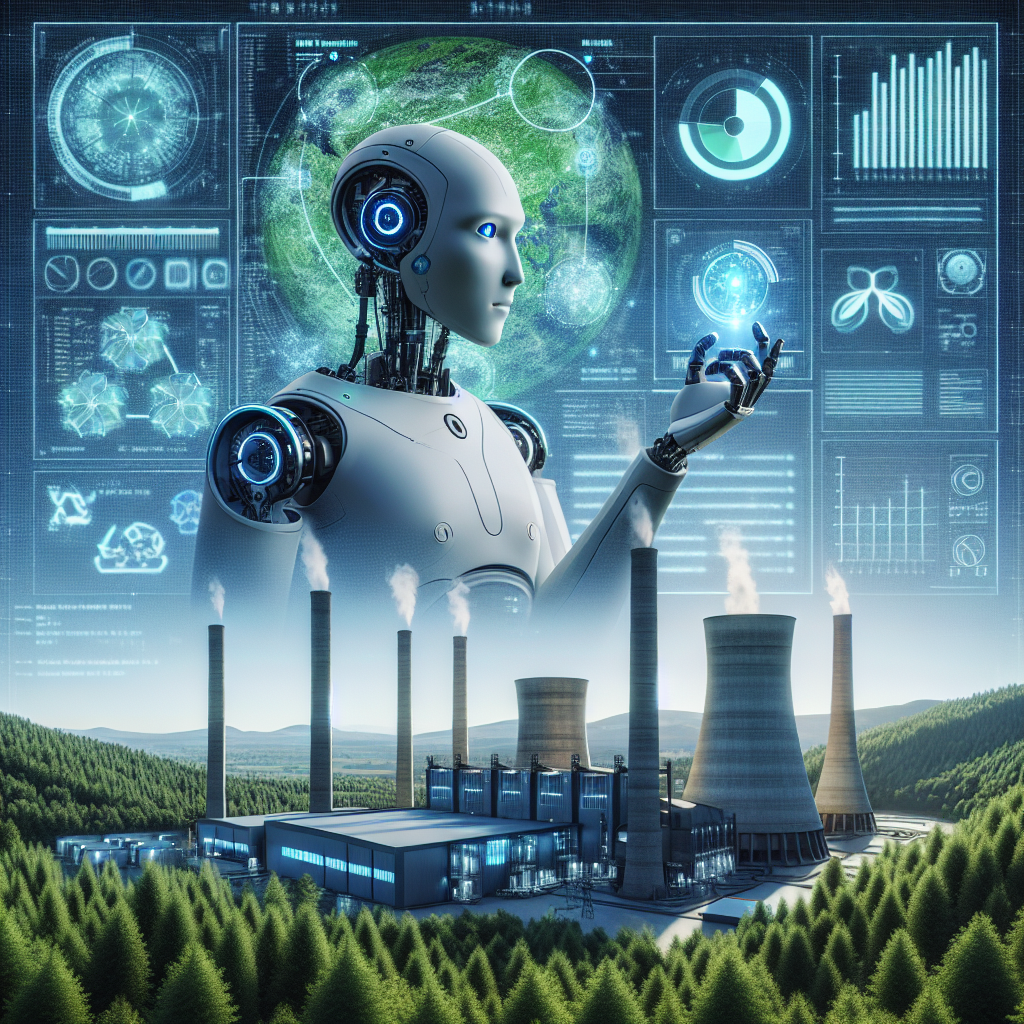AI-Driven Innovations in Biomass Energy Production
Biomass energy production is an essential part of the renewable energy sector, providing sustainable energy solutions that reduce carbon emissions and promote environmental sustainability. With advancements in artificial intelligence (AI) technology, the biomass energy sector is experiencing significant innovations that are transforming the way biomass energy is produced and utilized.
AI-driven innovations in biomass energy production are enhancing efficiency, reducing costs, and improving the overall sustainability of biomass energy systems. From optimizing biomass feedstock selection to enhancing energy conversion processes, AI is revolutionizing the way biomass energy is generated and utilized.
One of the key areas where AI is making a significant impact in biomass energy production is in the optimization of biomass feedstock selection. Biomass feedstock selection plays a crucial role in the efficiency and sustainability of biomass energy systems. By using AI algorithms, biomass producers can analyze a wide range of factors, such as feedstock availability, cost, energy content, and environmental impact, to optimize the selection of biomass feedstock for energy production.
AI algorithms can analyze large amounts of data and provide recommendations for the most suitable biomass feedstock based on specific criteria, such as energy content, cost, and environmental impact. This optimization process enables biomass producers to maximize energy output while minimizing costs and environmental impact, leading to more sustainable and efficient biomass energy production.
In addition to optimizing biomass feedstock selection, AI is also being used to enhance the energy conversion processes in biomass energy systems. Energy conversion processes, such as biomass gasification and combustion, play a crucial role in converting biomass feedstock into usable energy sources, such as electricity and heat.
By using AI algorithms, biomass producers can optimize energy conversion processes by analyzing various factors, such as temperature, pressure, and feedstock composition, to improve energy conversion efficiency and maximize energy output. These AI-driven optimizations lead to more efficient energy conversion processes, reducing energy waste and enhancing the overall sustainability of biomass energy production.
Furthermore, AI is also being used to monitor and control biomass energy systems in real-time, optimizing system performance and energy output. AI algorithms can analyze data from sensors and monitoring devices to identify potential issues or inefficiencies in biomass energy systems, allowing operators to make real-time adjustments and optimizations to maximize energy output and efficiency.
By using AI-driven monitoring and control systems, biomass producers can improve the reliability and performance of biomass energy systems, reducing downtime and maintenance costs while maximizing energy production. These AI-driven innovations are revolutionizing the way biomass energy is produced and utilized, making biomass energy a more viable and sustainable renewable energy source.
Overall, AI-driven innovations in biomass energy production are revolutionizing the way biomass energy is generated and utilized, enhancing efficiency, reducing costs, and improving the overall sustainability of biomass energy systems. With advancements in AI technology, biomass energy producers can optimize biomass feedstock selection, enhance energy conversion processes, and monitor and control biomass energy systems in real-time, leading to more efficient and sustainable biomass energy production.
FAQs
Q: How does AI optimize biomass feedstock selection in biomass energy production?
A: AI algorithms analyze a wide range of factors, such as feedstock availability, cost, energy content, and environmental impact, to recommend the most suitable biomass feedstock for energy production based on specific criteria, such as energy content, cost, and environmental impact.
Q: How does AI enhance energy conversion processes in biomass energy systems?
A: AI algorithms optimize energy conversion processes, such as biomass gasification and combustion, by analyzing various factors, such as temperature, pressure, and feedstock composition, to improve energy conversion efficiency and maximize energy output.
Q: How does AI monitor and control biomass energy systems in real-time?
A: AI algorithms analyze data from sensors and monitoring devices to identify potential issues or inefficiencies in biomass energy systems, allowing operators to make real-time adjustments and optimizations to maximize energy output and efficiency.
Q: What are the benefits of AI-driven innovations in biomass energy production?
A: AI-driven innovations enhance efficiency, reduce costs, and improve the overall sustainability of biomass energy systems, making biomass energy a more viable and sustainable renewable energy source.

